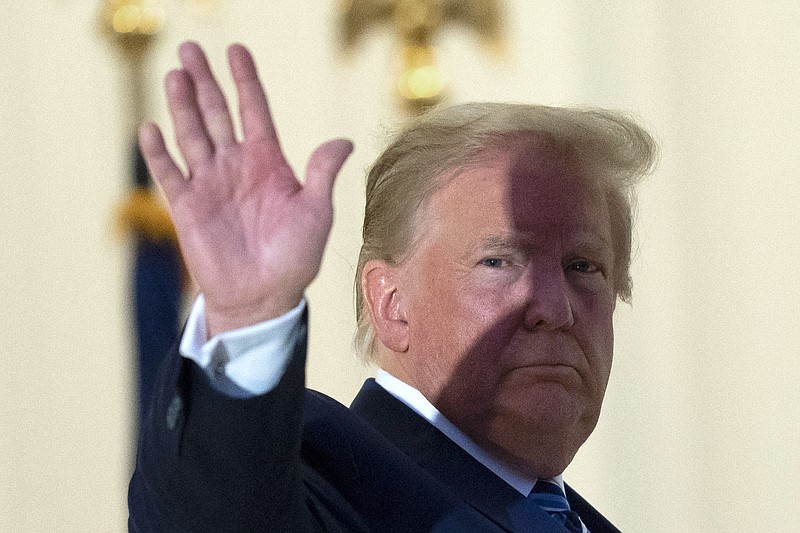WASHINGTON (AP) - President Donald Trump on Wednesday tried to salvage a few priority items lost in the rubble of COVID-19 relief talks, pressing for $1,200 stimulus checks and new aid for airlines and other businesses hard hit by the pandemic.
In a series of tweets, Trump pressed for passage of these chunks of assistance, an about-face from his move Tuesday afternoon to abandon talks with House Speaker Nancy Pelosi. The California Democrat has rejected such piecemeal entreaties all along.
Trump's tweets amounted to him demanding his way in negotiations that he had ended. Trump, who absorbed political heat for abandoning the talks, is the steward of an economy whose continued recovery may hinge on significant new steps such as pandemic unemployment benefits. His tweets seemed to move the financial markets into positive territory, though it was far from certain whether they would impress voters demanding more relief.
He called on Congress to send him a "Stand Alone Bill for Stimulus Checks ($1,200)" - a reference to a pre-election batch of direct payments to most Americans that had been a central piece of negotiations between Pelosi and the White House.
Trump also urged Congress to immediately approve $25 billion for airlines and $135 billion for the Paycheck Protection Program to help small businesses.
The stock market fell precipitously after Trump pulled the plug on the talks but was recovering Wednesday after he floated the idea of piecemeal aid.
Trump's decision to scuttle talks between Treasury Secretary Steven Mnuchin and Pelosi came after the president was briefed on the landscape for the negotiations - and on the blowback that any Pelosi-Mnuchin deal probably would have received from his GOP allies in Congress.
"It became very obvious over the last couple of days that a comprehensive bill was just going to get to a point where it didn't have really much Republican support at all," White House chief of staff Mark Meadows said Wednesday on Fox News. "It was more of a Democrat-led bill, which would have been problematic, more so in the Senate than in the House."
Pelosi told reporters "all the president wants is his name on a check" for direct aid payments.
The unexpected turn could be a blow to Trump's re-election prospects and comes as his administration and campaign are in turmoil. Trump is quarantining in the White House with a case of COVID-19, and the latest batch of polls shows him behind Democrat Joe Biden with the election four weeks away.
Trump's withdrawal from the talks came after he spoke with GOP leaders in Congress. Many Republican senators had signaled they would not be willing to go along with any measure that topped $1 trillion, and GOP aides had been privately dismissive of the prospects for a deal. Any Pelosi-sponsored agreement of close to $2 trillion raised the potential of a GOP revolt if such a plan came to a vote.
Pelosi and Mnuchin talked briefly Wednesday morning about the chances for a standalone airline rescue, Pelosi spokesperson Drew Hammill tweeted. Pelosi directed Mnuchin to a measure she had attempted to pass Friday on short notice under fast-track procedures but only after Democrats made a number of changes Republicans did not like.
The talks have been troubled from their start in July and never appeared to close in on an agreement both sides could embrace.

